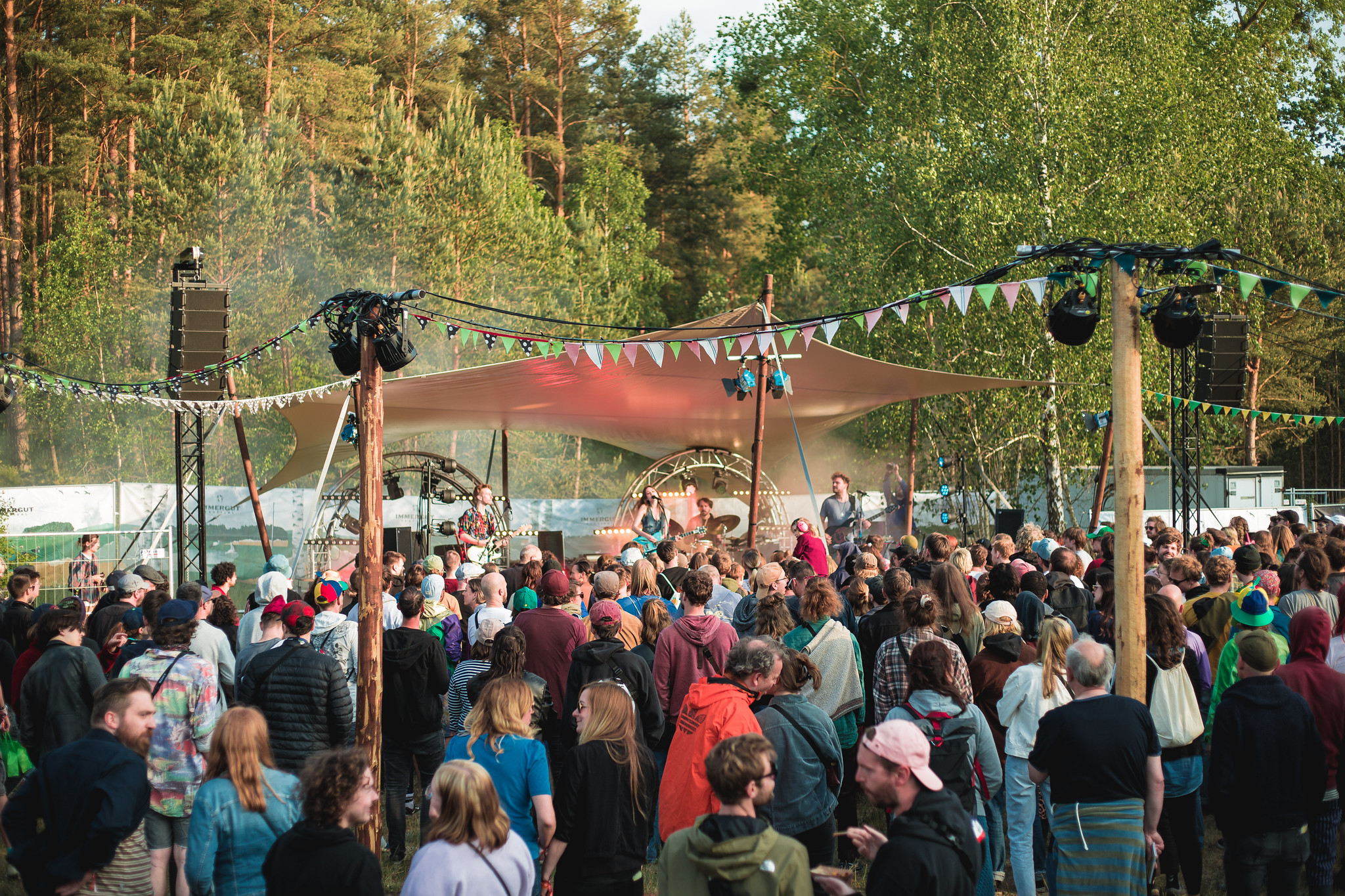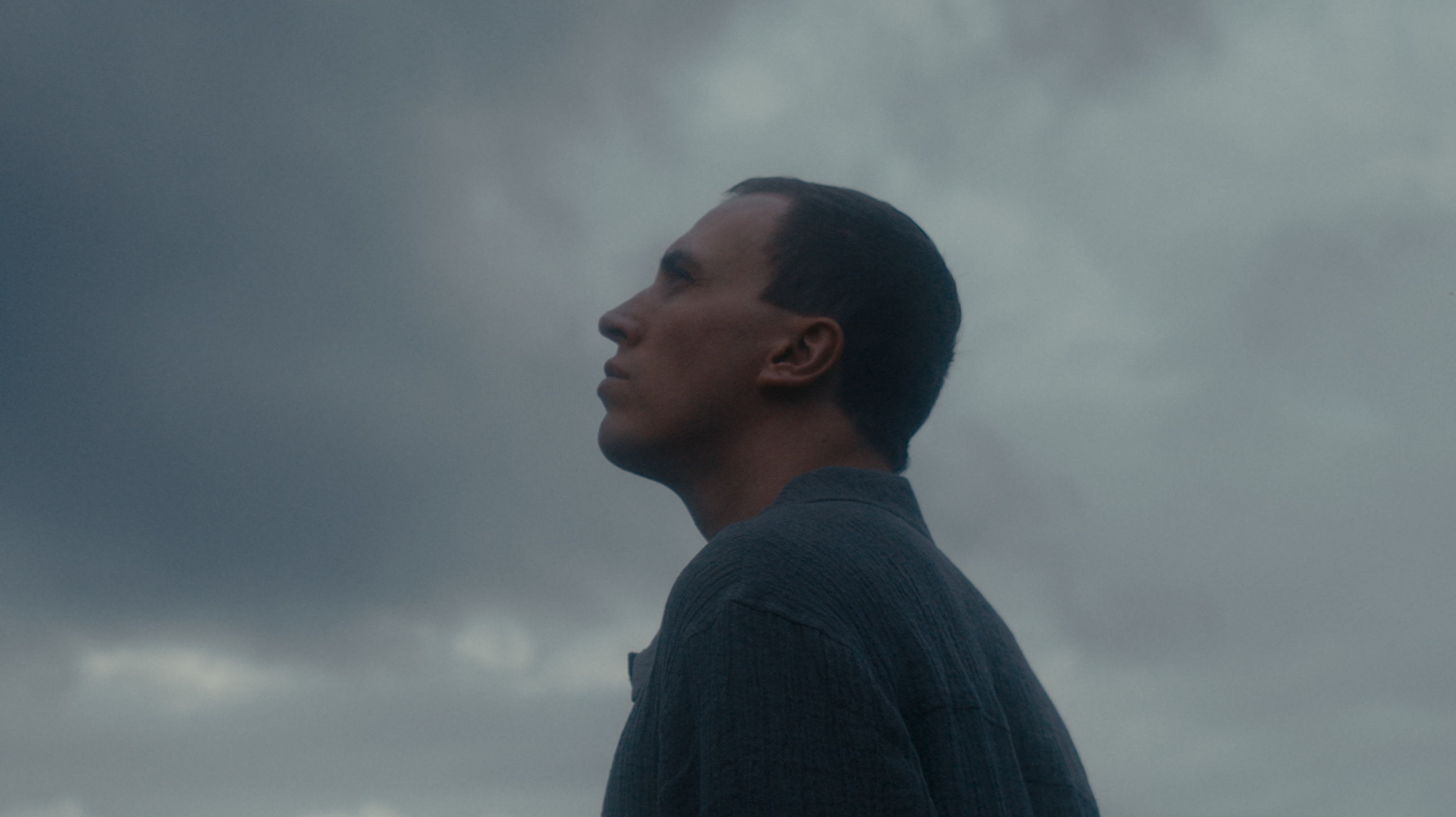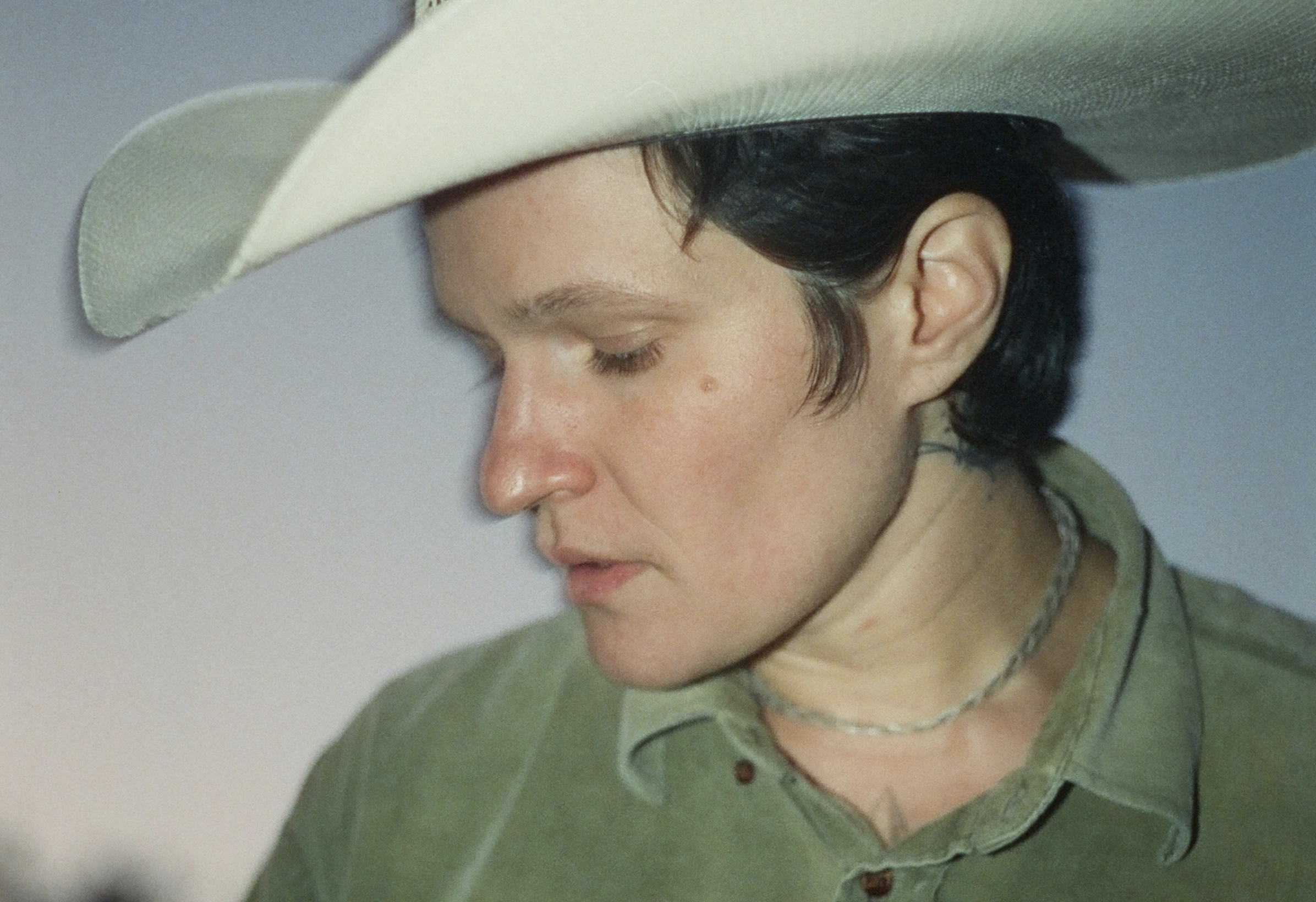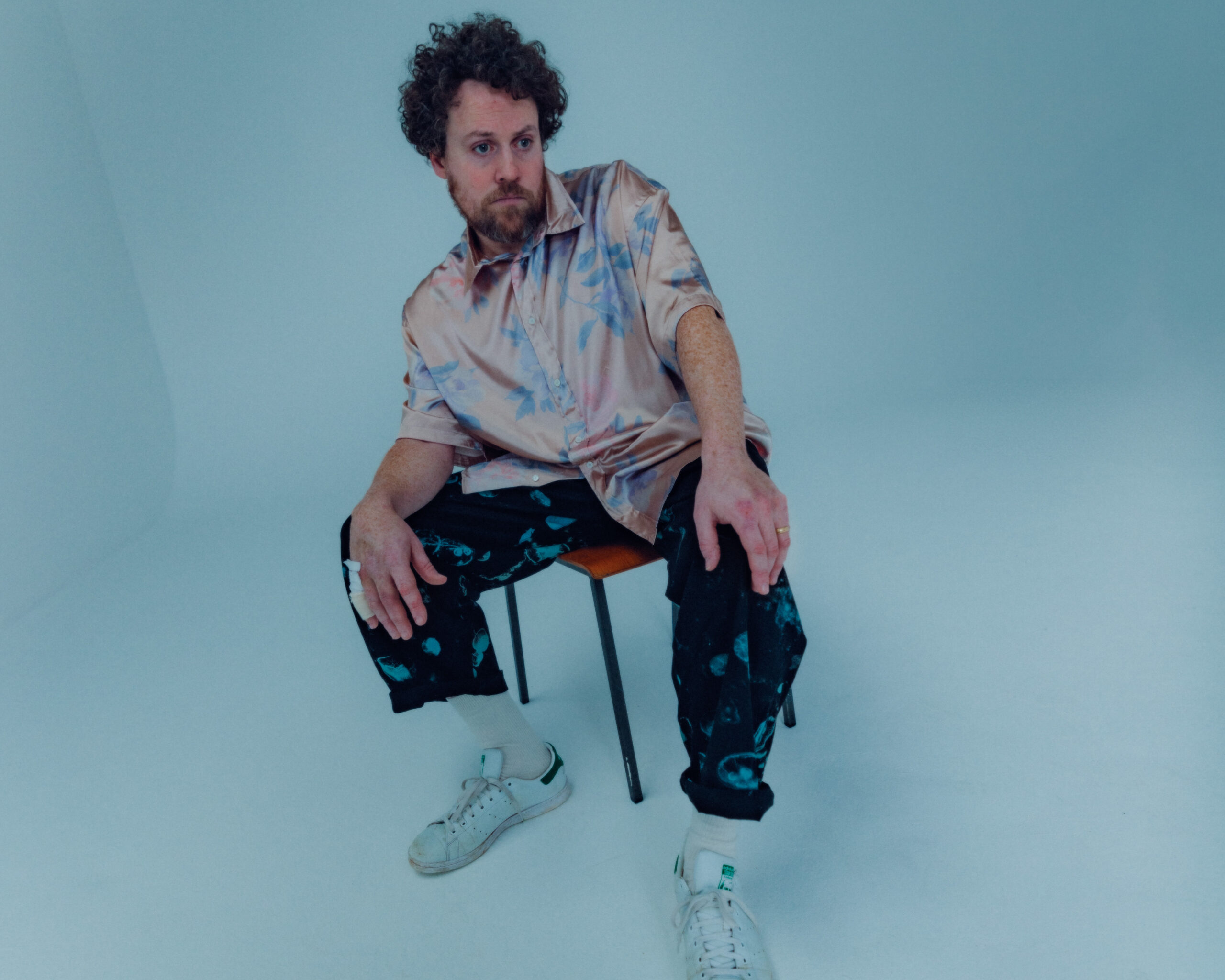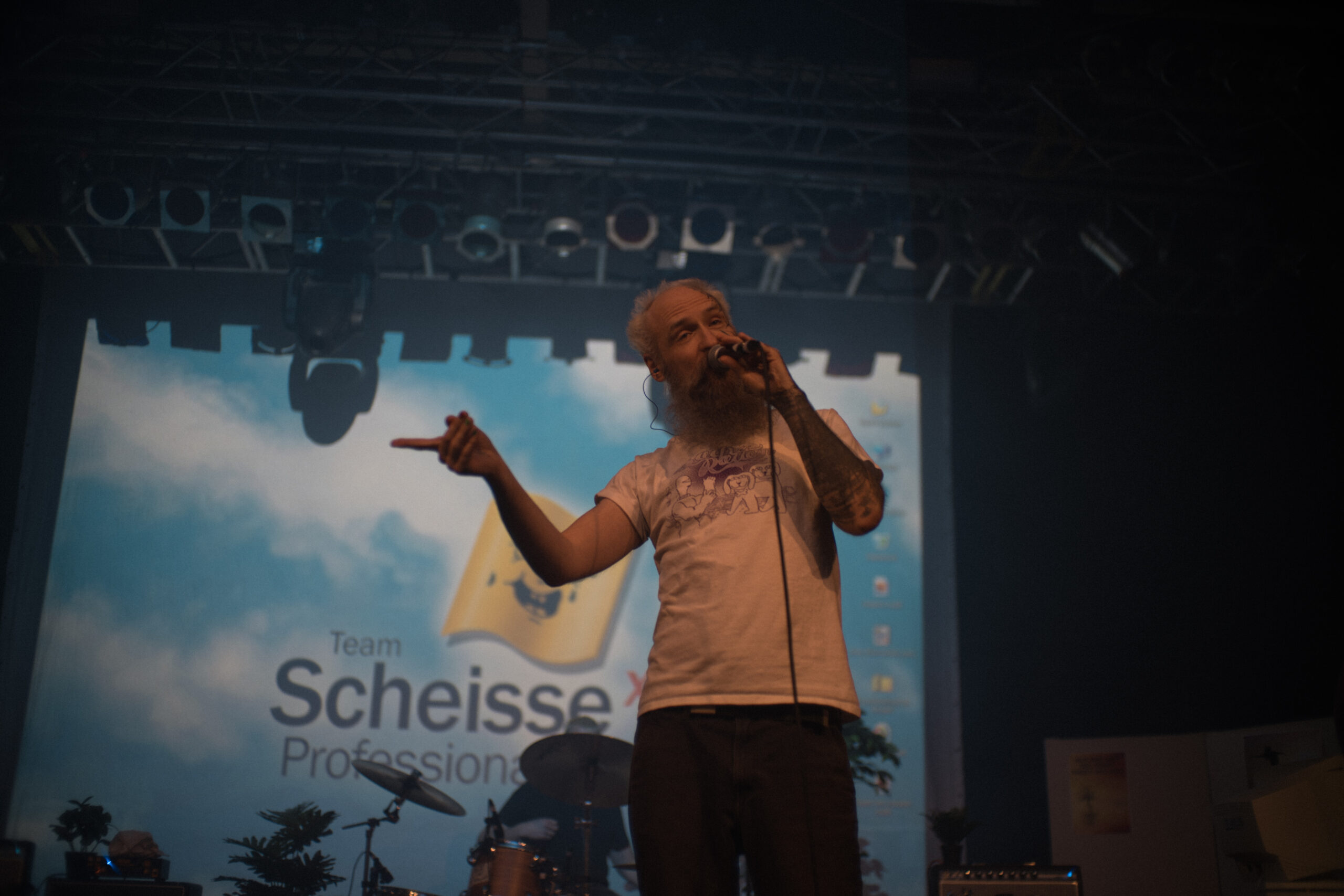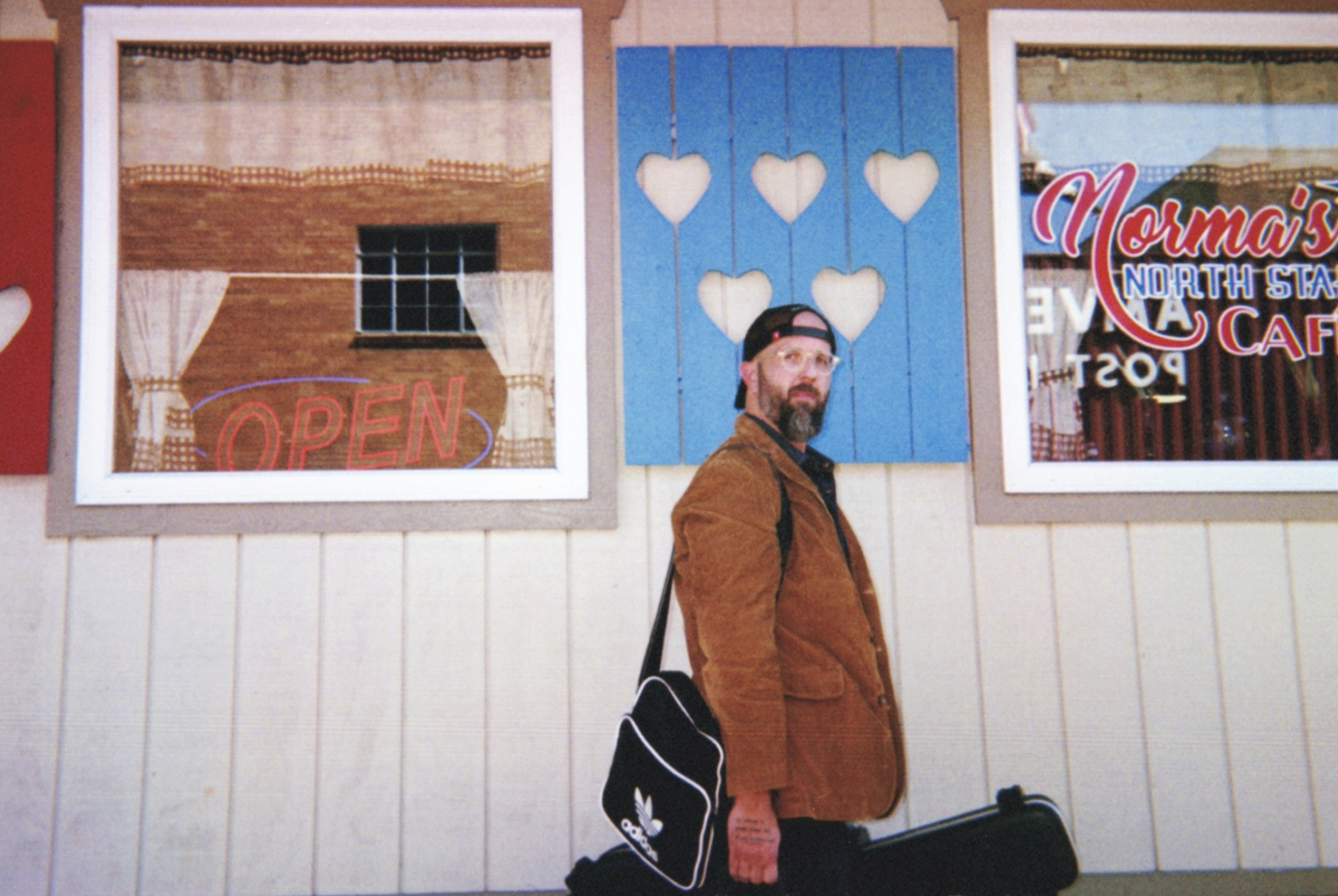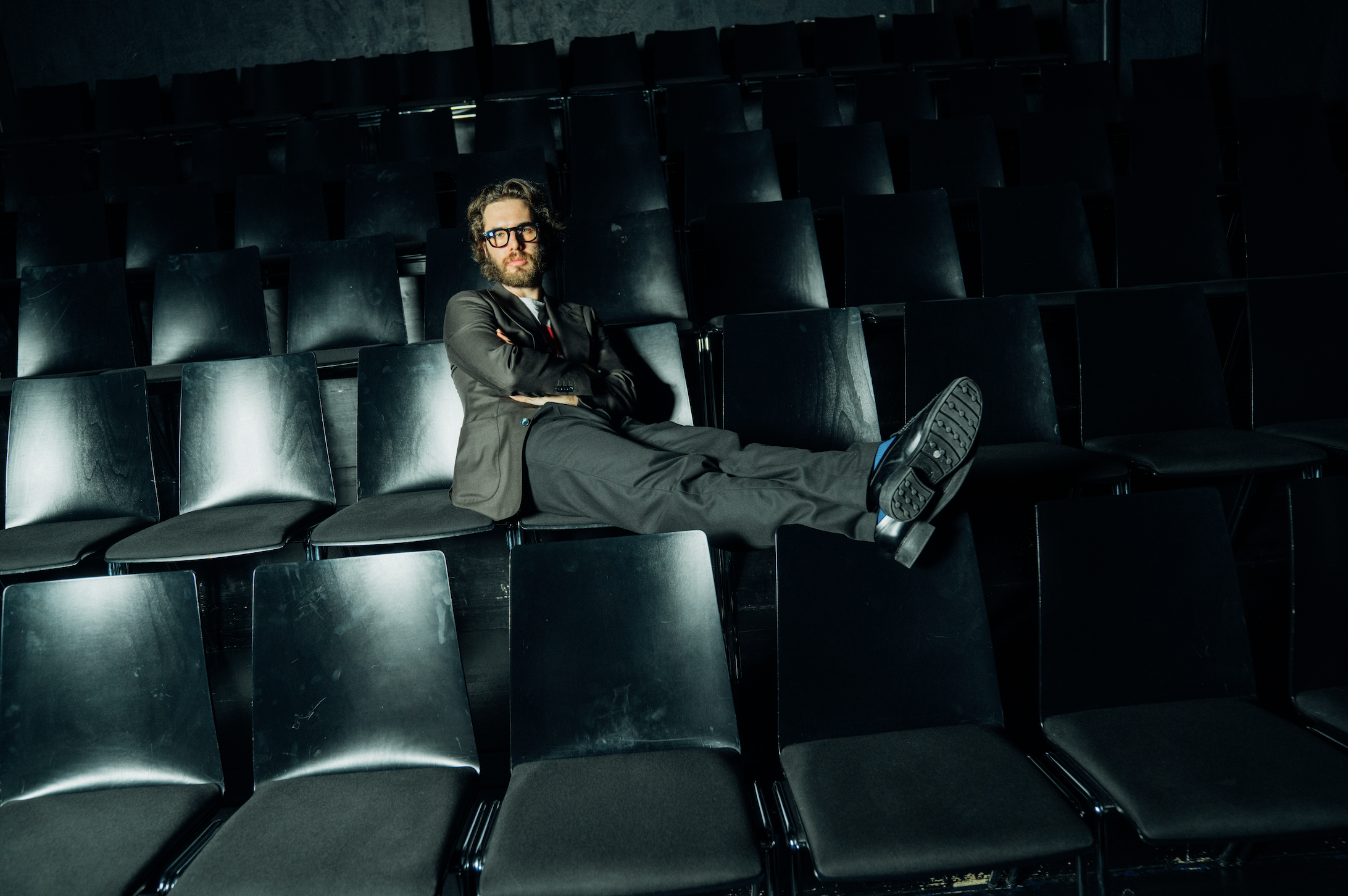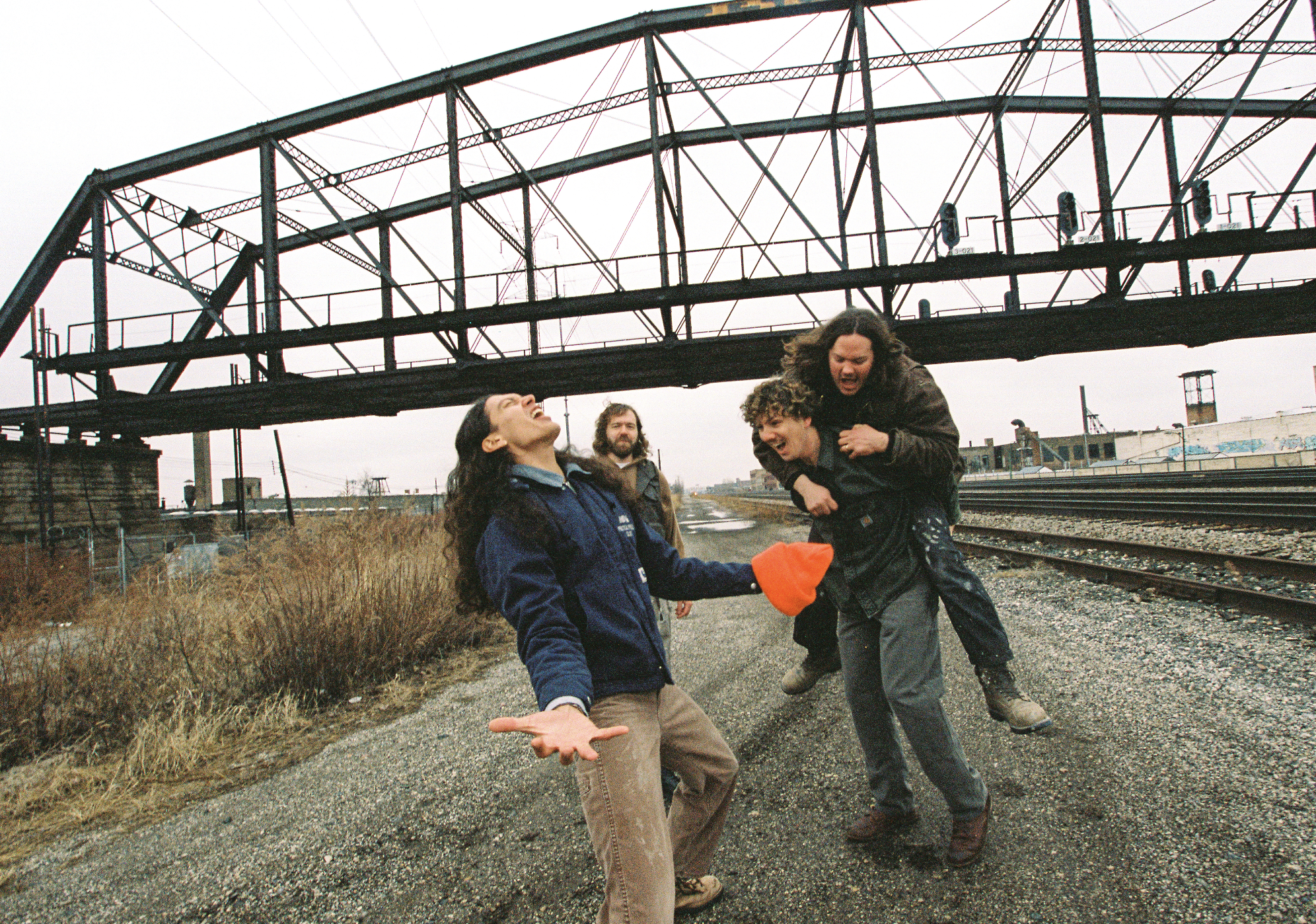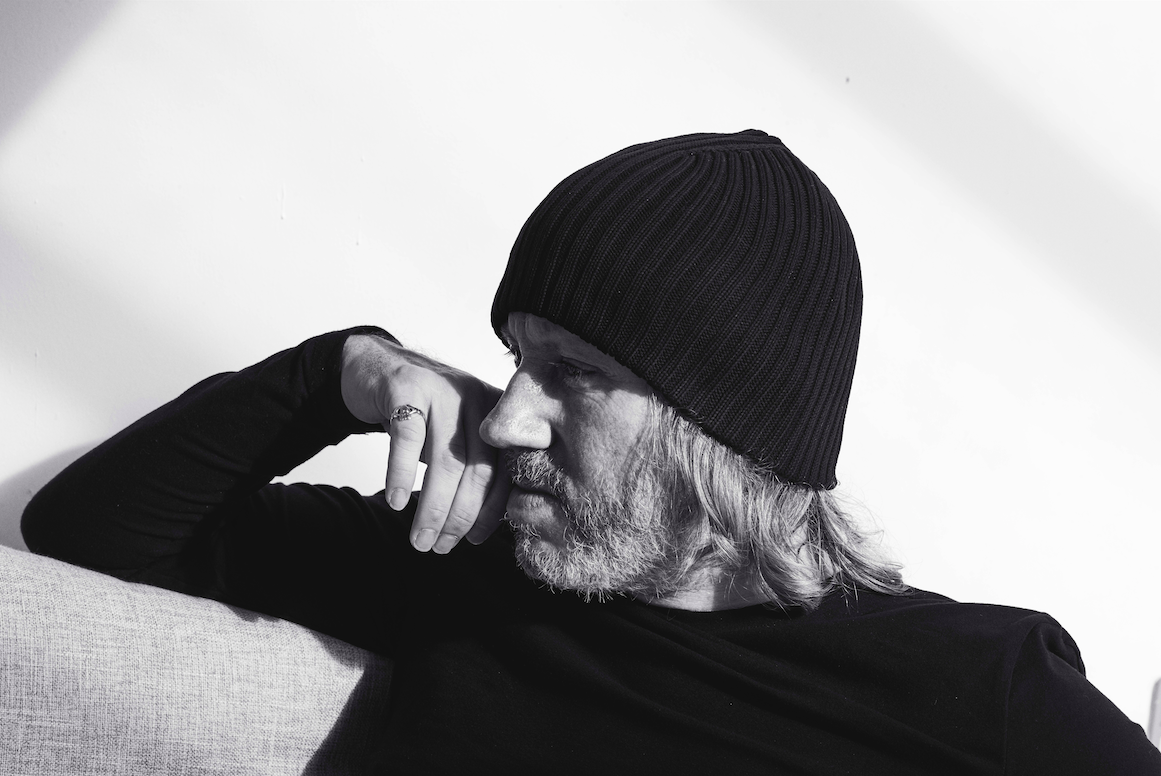Foto Credits @ David Oldham
Badly Drawn Boy, der alte Kumpel. Lange nicht gesehen. Das letzte Lebenszeichen in Form einer Plattenveröffentlichung war der Being Flynn-Soundtrack vor acht Jahren. Vorher erschien das Studioalbum It‘s What I‘m Thinking Pt. 1 – Photographing Snowflakes. Die angedachten Teile 2 und 3 der Serie fielen weg, es lief nicht mehr richtig für Damon Gough, wie der Bursche bürgerlich heißt. Um die Jahrtausendwende herum war das anders. Da erschien das von der Kritik gefeierte Debüt The Hour Of Bewilderbeast, es brachte ihm in Britannien den Mercury-Preis ein. Mit ihm wurde der passionierte Wollmützenträger zum Kulttyp schlechthin. Er war ein bisschen unkoordiniert, rochierte zwischen Songwriting mit Springsteen-Schlagseite, Sixties-Soul, Gitarrenpop nordenglischer Prägung und Dance-Beats und gab Konzerte, die kräftig in die Länge gingen. Es folgten der Soundtrack zur Verfilmung des Nick-Hornby-Buchs About A Boy und zwei weitere gute Alben. Danach entschied sich Damon für den Wechsel zum Major EMI, den es inzwischen nicht mehr gibt. Born In The U.K. war das einzige Resultat in dieser Arbeitsbeziehung, es lief nicht recht zusammen damals.
Nun sitzt er mitten in der Corona-Pandemie im Zoom-Gespräch vor Eurem Berichterstatter. Es sieht ordentlich aus in seinem Zimmer. Hinten steht das Vinylalbum Hard Times von Whyte Horses, für das Damon eine Version von Lou Reeds Satellite Of Love eingesungen hat. Vorne sitzt der inzwischen 50jährige höchstpersönlich. Er sieht ergrauter aus, die Farbe der nach wie vor obligatorischen Mütze passt dazu. Damon redet ohne Punkt und Komma, er ist voll bei der Sache. Nüchtern ist er auch, das war nicht immer so. Während des Interviews erzählt er von nicht enden wollendem Alkoholkonsum. Die Ehe ging in die Brüche, es lief auch privat nicht gut. Dann brachte ihn Ärger über politischen Irrsinn in Britannien auf die Palme. Er schrieb neue Songs, heiratete wieder, bekam ein weiteres Kind. Jetzt folgt mit Banana Skin Shoes ein fittes Comeback. Auf ihm befinden sich mit I Just Wanna Wish You Happiness ein Gruß an die Ex und mit I Need Someone To Trust und Note To Self weitere Momente der Aufarbeitung. Gleichzeitig übermalt er alles euphorisch mit bunt melodischen Farben, wie es nur jemand aus Manchester kann. Noch nie wirkte Damon von Anfang bis Ende so konzentriert, was auch an einer guten Ladung Groove liegt, die es in der geballten Form bei ihm bisher nicht gab. Es passt alles bestens. Happy days are here again.
Hello, Damon. Good to see you again.
Hey, you look familiar, you haven‘t changed much.
We both got a bit greyer, I suppose.
Yeah, distinguished.
Times have definitely changed though, we can‘t go out much.
It‘s a shame. I miss going out. But this is life now, we can‘t change it unfortunately.

You‘re pretty busy. What kind of feeling is it to come back, to come into land again after a break of eight years?
Finishing the album at the end of last year was a relief. At the beginning of the year I had a few gigs that were very good. The first single came out, it all felt really exciting again. Just to be back and be current was refreshing feeling, something I‘ve waited for for a while. Then of course this has happened with this virus. You can‘t be disappointed because there‘s so many people affected in bigger ways than me just releasing an album. It‘s not what you would wish for to be releasing an album in this kind of mood, but I‘m still reserving the right to remain optimistic and enthusiastic about having a new record out.
You‘re promoting it through live streams as well, which is a bit of a thing at the moment. New situations, new challenges.
I started doing them in February just to rebuild my profile as an artist. I find it really daunting, and then when the lockdown thing happened I felt really strange doing it. Can I really justify promoting a record at a time when people are really out there suffering? We could have decided to postpone the release, but none of that felt honest. The authentic response from my point of view is to continue with what I can manage to continue with. This album is about my own personal struggles that I had to come through and come back from. I feel like an unknown artist again, I‘ve got to re-establish who I am. I had to give up drinking five years ago. I drank too much. When you‘re working in the studio and doing gigs, certain situations become more tolerable when you‘re drinking. That‘s what booze is for, it just makes situations easier. A relationship ended too in 2012, all those things, hence the title Banana Skin Shoes. I‘m admitting I‘ve made some mistakes in life, but I‘ve come back stronger. I‘m able to laugh at those mistakes because I‘ve got to a place that‘s better.
You have started out at the end of the 90s, you were seen as the next bright hope that can help people to get through the post-Britpop malaise. Did you feel you have been able to live up to these expectations or did you think, it‘s all mad, I can‘t deal with it?
Every artist would like to think they‘ve got something to offer, whether it‘s on a big scale or a small scale. I‘ve always tried to be realistic and honest, for the common man or people who want some goodness in the world. But you wonder how far that gets you. I think the last 20 years have made me realize that maybe I haven‘t got enough. I‘ve spread some really good messages…
…and you‘ve lived through disasters as well.
I‘ve had some gigs that have gone wrong. Only a handful, but a handful is enough to bruise your reputation as it were. I had thousands of great gigs, but five or six or ten not so great gigs – that spoilt my reputation for a while. Part of that was my fault, I was off the rails. I don‘t want to make excuses, yet there was perhaps a lot of pressure on myself to be bigger than I can be. I think I‘ve changed as a person, now I don‘t expect very much. I don‘t expect to change the world. If I can change it in a small way and that has a domino effect, it‘s fine.
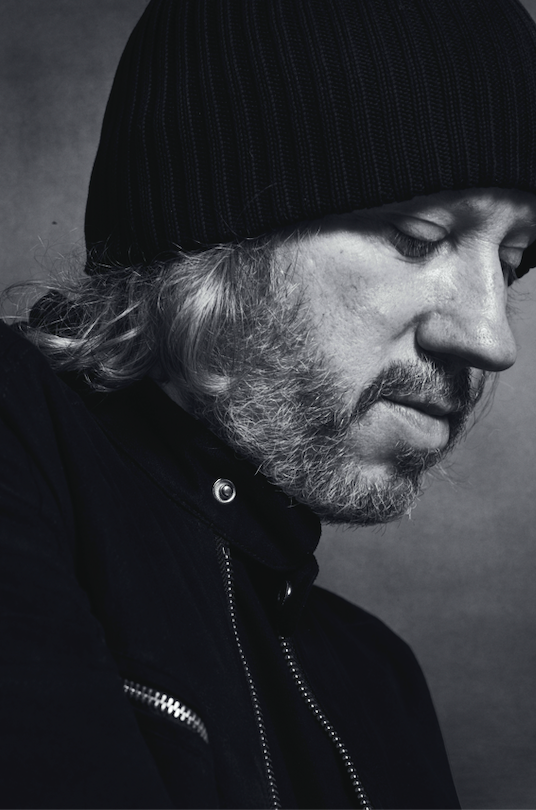 After the result of the referendum came in, you have recorded six new songs out of the blue with Youth as a producer. Did the news of the result help you re-ignite the spark of creativity?
After the result of the referendum came in, you have recorded six new songs out of the blue with Youth as a producer. Did the news of the result help you re-ignite the spark of creativity?
The referendum result really upset me and a lot of other people. Half of the nation weren‘t expecting that at all, it was big shock that 52% of the vote went to leave Europe. Unfortunately I think we needed a shake-up of some kind. I didn‘t expect it to be this, but something had to stir up the part a little bit. I wanted aliens to land after the last three years of the bickering surrounding Brexit, which I was heavily opposed to. I didn‘t see any positives in us leaving Europe. Togetherness is paramount really in the world that we live in, as hippy-dippy as that may sound, it‘s just true. I saw the world, I saw Europe, I‘ve been to Germany several times. I‘ve had first-hand experience of what it is to actually be with people in your hometown. It breaks down the barriers and the stereotypes that people have of each other. We‘re an island, for God‘s sake! The whole idea was separating ourselves metaphorically further from the mainland and other cultures, it seemed ludicrous and still does. The connection we have with other people in all parts of the world is so important. Is This A Dream? is probably the song that most touches on that.
You‘ve experienced all of that in Manchester, the town in which you are based. I‘d like to ask you a few things about life in town, first off on the terror attack at the Ariana Grande concert in 2017. What did you feel at the time as a musician? What kind of impact did that situation make?
My son Ruben was born on the day of that concert. Ruben‘s going to be three in a couple of weeks time on the 21st May. I was driving back from the hospital and I had the radio on and I heard about this incident at the Arena. One of my older two kids, Edie, there was a good chance she was going to be at that gig. She didn‘t go in the end, but some of her friends went. Thankfully I didn‘t know anybody personally that was killed but for that to happen in your town…it was horrendous. In the last six months those terrorist incidents seemed to have stopped for the time being, but I‘m trying to second-guess what a terrorist might be doing next. It‘s a cowardly way of going about business to walk into a place and target young people in the prime of their lives or people of all ages. I‘m glad you‘ve asked the question, but haven‘t got a clear answer. There are so many problems in the world and you can only address them one by one or do your best to help one scenario before you help the next one.
Another thing about Manchester is that you‘re paying homage to Tony Wilson on the record. He was a legend in town, he ran The Hacienda and the Factory label and did radio shows. Why do you celebrate him now in the track Tony Wilson Said?
When Tony passed away I wanted to go to the funeral, I didn‘t make it to the funeral, I can‘t remember why. Making this album after such a break was the first opportunity I had to write about him, but I didn‘t expect to write this song, it came out of the blue. I was sat playing the piano and singing a melody in my head and pressed the tape recorder. I remember just saying the words Tony Wilson in this early version of the song – it‘s a good take on Jackie Wilson Said, that‘s a good place to start. Then I thought, can I really write a song about Tony Wilson? Is it too privileged to write a song about somebody who was a real person who‘s not here anymore? I agonized over the idea of it, and then Keir Stewart came in. Keir used to play in the band The Durutti Column and owns a studio now. He knew Tony well and I presented the song to him. He was really enthusiastic and said that‘s brilliant, why not? He gave me the courage to pursue the idea of the song.
What kind of reaction are you expecting from the next of kin?
I‘m a bit nervous about his son, Oliver Wilson. I‘ve not played it to Ollie, I keep meaning to call him. I‘ve not seen him for two or three years, I hope he appreciates a song that is a tribute to his dad. When I started in 1997 with the label Twisted Nerve, through the 90s when I was hoping to be a musician, bands like me, Doves, Elbow, I Am Kloot and Alfie, there was a scene in Manchester that already existed because Tony had been a figurehead. Without his enthusiasm there wouldn‘t have been a scene in Manchester at that point in time, he kept it going. The idea of putting that into a song was just appealing to me, to pay an honest tribute to him and celebrate him. I hope it‘s perceived in the way it‘s meant to be. It‘s probably my proudest moment as a songwriter to achieve that song.

Have you met Tony personally? What did he say?
He invited us to his office when we started the label in 1997, he just gave us so much advice and said well done for doing something new. I met him on other occasions. I couldn‘t get into a nightclub in London one night, I was queueing up, the bouncer didn‘t let me in, I don‘t know why, he didn‘t like my face or something, this was probably in the early 2000s. Tony comes out of the club, sees me in the queue and says to the bouncer, why you‘re not letting this guy in, don‘t you know who this is? It‘s Badly Drawn Boy! He takes me into the club, buys me a drink, sits down for an hour and we chatted. The last time I saw Tony was on Whitworth Street down from the Hacienda and he was with photographer Anton Corbijn. They must have been talking about the film Control I think, the Joy Division film. Tony crosses the street to shake my hand and to introduce me to Anton Corbijn. Every time I met him he showed me so much respect. I‘ll never forget that.
The record takes us back to a time when music was different. You love Billy Bragg, The Smiths and The The, you can hear it. Interestingly enough you‘re also working with a lot of dance beats coming from the Madchester era, Northern Soul or the Big Beat days. Was it important for you from the start to have more groove on the record?
Great question. I‘m really chuffed, the way you‘ve analyzed the record. It‘s one way how I want people to receive it, it‘s got energy, the pop sensibility, the beats. If that‘s what you‘re getting from it, I‘m really pleased to hear that. It‘s still a collection of songs, but I was conscious of wanting to incorporate a beat in one kind or another, even if it‘s a bossa nova in You And Me Against The World. There‘s always a groove you might be able to nod to in the songs, which is something I‘ve never really attempted. I‘d love to make a dance music record, but it‘s not who I am. I could do it, but if I started the music to beats I would make a different record. That might be a challenge that I might take on one day, but I was trying to preserve the songs while still giving them a sensibility of some kind of pulse and rhythm. It was a conscious effort to bring in a little more of that element to this album. I hope people like it and feel uplifted. I really hope it can drag them out of the mess we‘re sometimes in.
Das Gespräch führte unser Autor Tom Whelan.

